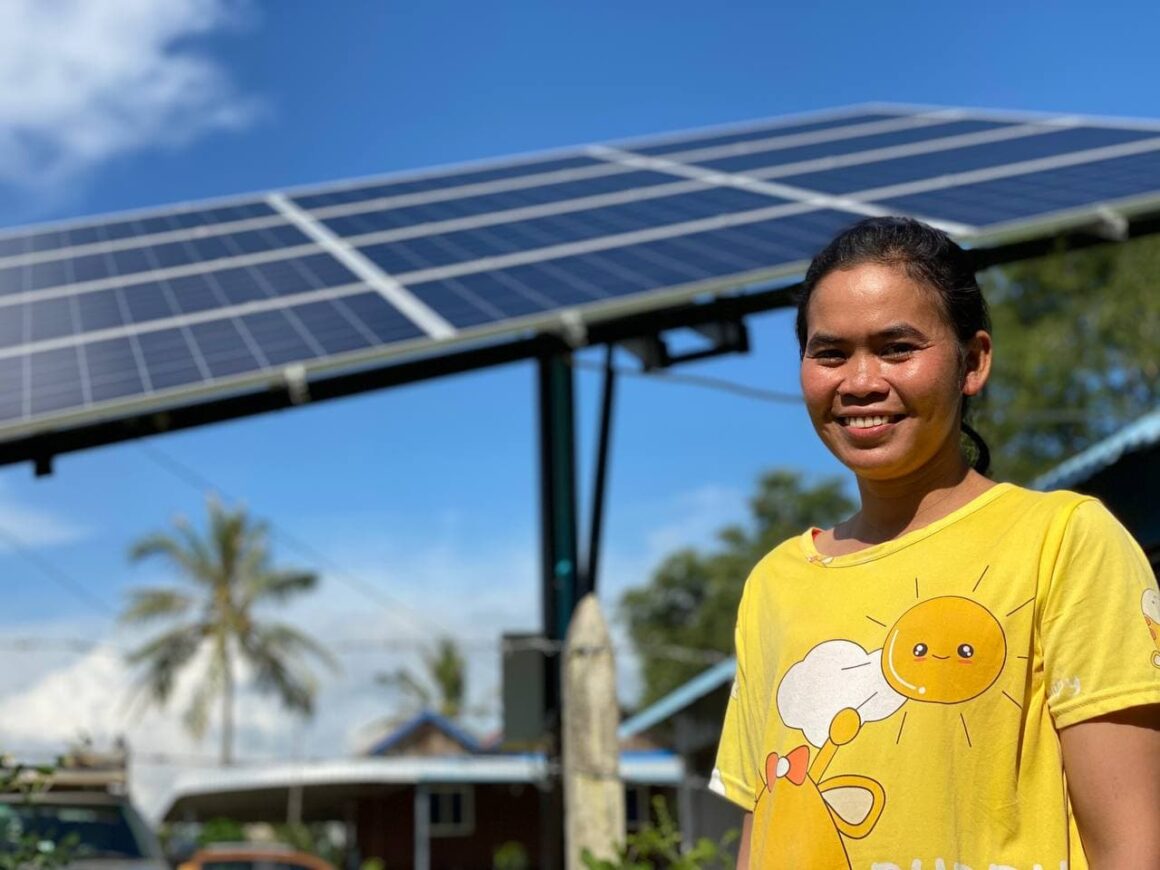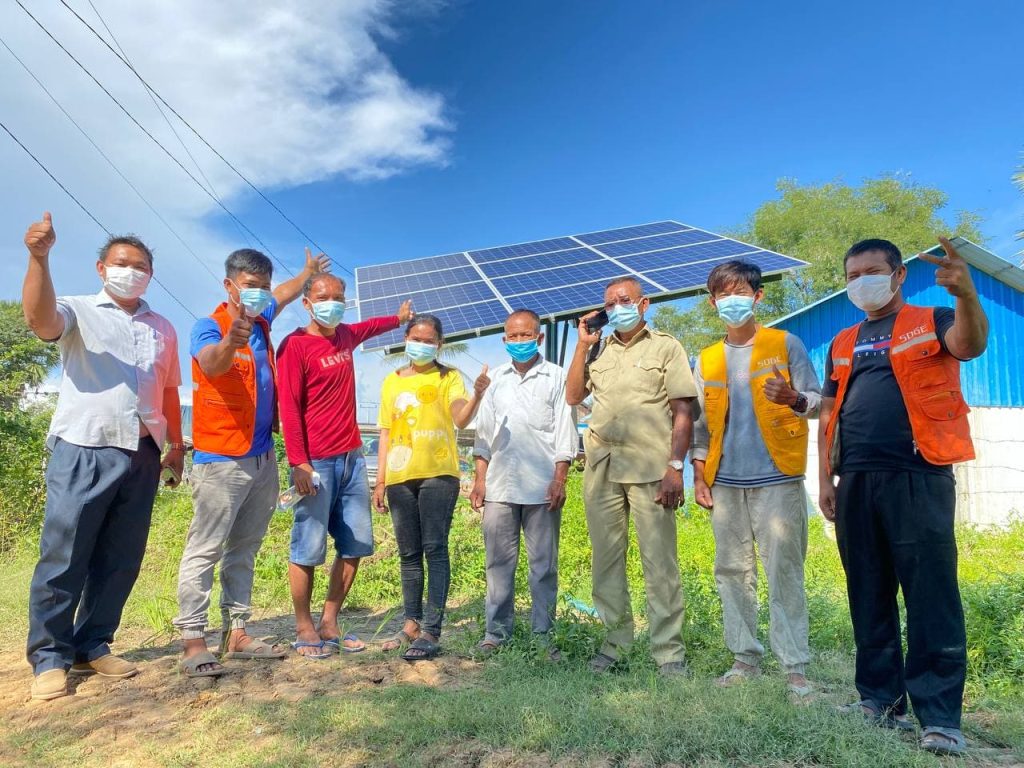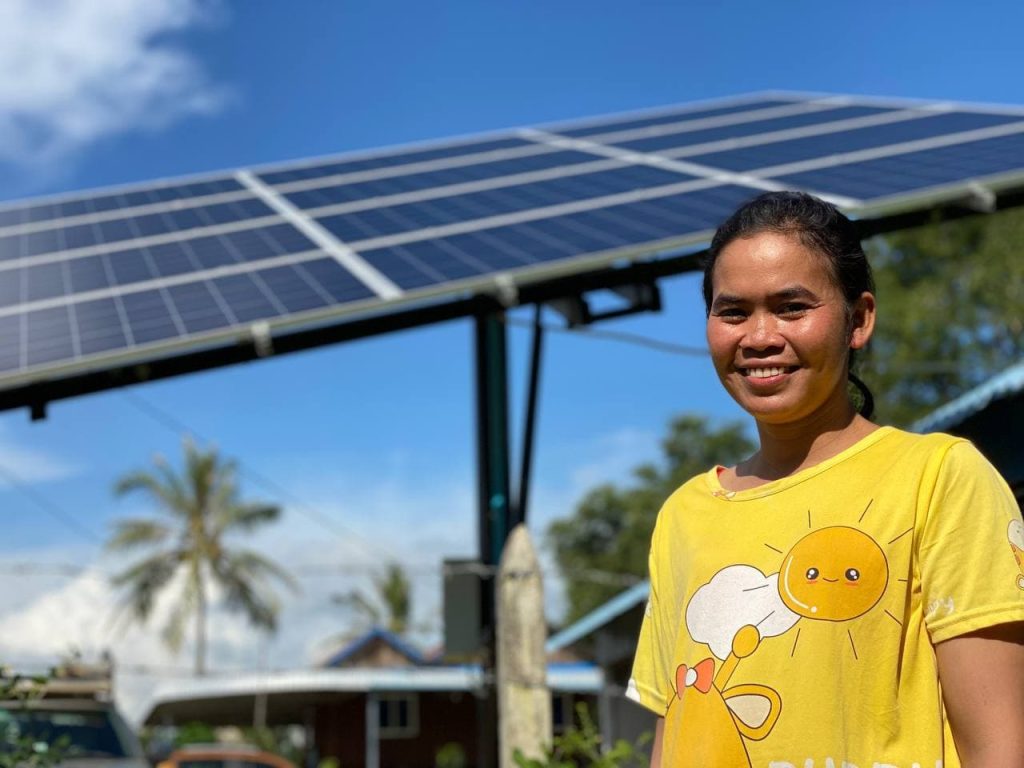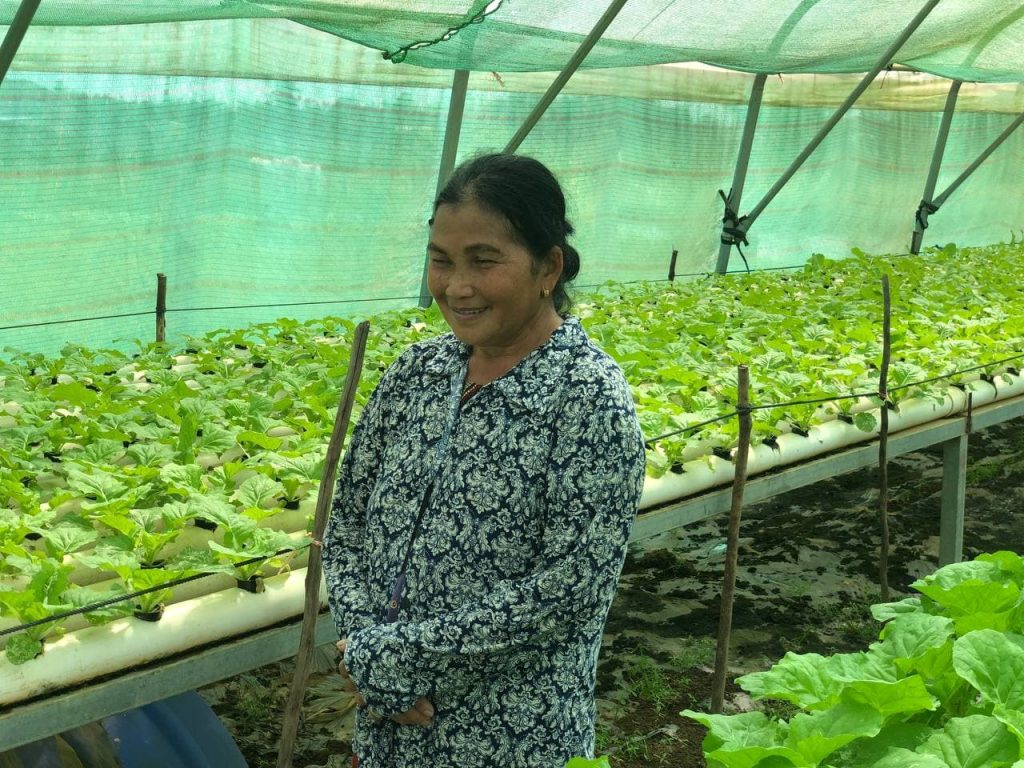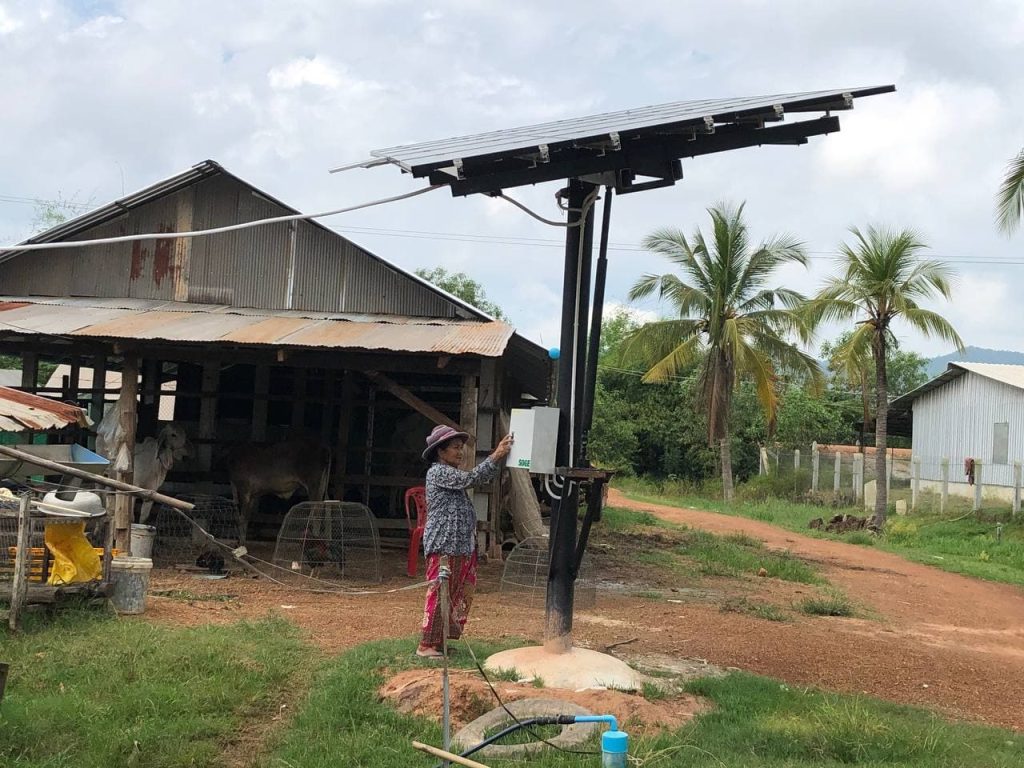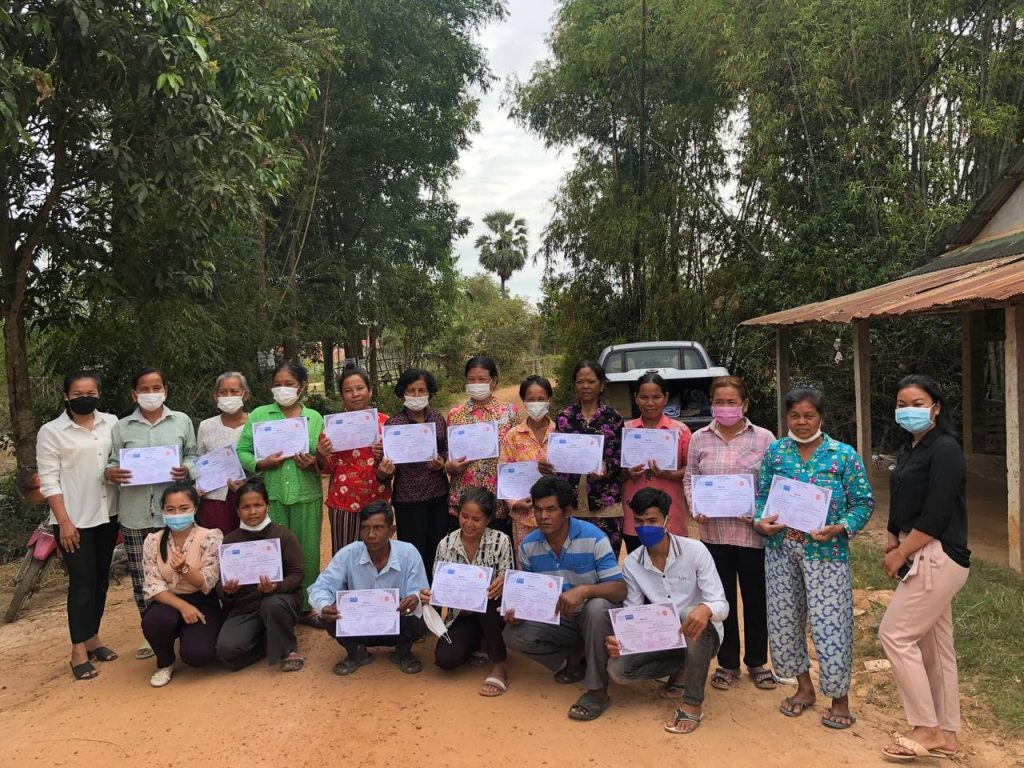EmPower Women for Climate Resilient Societies is a project jointly initiated by UN Women and UN Environment, with the support of the Swedish International Development Cooperation Agency. The project focuses on three countries in Asia: Bangladesh, Vietnam, and Cambodia.
Since 2019, Nexus for Development has been working with the EmPower Project in Cambodia alongside UN Environment Programme (UNEP – the financer) and the Cambodian National Committee for Sub-National Democratic Development Secretariat (NCDDs – co-implementer) to enable women to use renewable energy as economic resources for resilient livelihoods.
In 2021, we engaged in feasibility studies to evaluate the six preselected livelihood interventions identified during the scoping and feasibility studies.
- Solar individual water pump for vegetable cultivation
- Solar community water pump for rice cultivation
- Solar chicken incubation
- Clean energy products retail
- Solar electricity for clean water social enterprise
- Cold storage technology
AREAS OF FOCUS
Our focus was to identify a financially viable model that would benefit all parties and the environment and have the potential to be replicated and scaled. Hence it was imperative to find the right balance between the potential of a livelihood option and the implementation reality on the ground, considering the beneficiaries’ situation and the financing environment in Cambodia.
We have been able to develop a standard methodology suitable for small-sized projects without compromising on the financial analysis principles, as we knew it was essential to play by FIs’ rules if we wanted to mobilize them.
We also designed a financing mechanism to promote easier access to finance for renewable energy and women-driven businesses and launched a consultation with Cambodian financial institutions (“FIs”), technical providers, and other industry partners to discuss how to remove barriers to climate-resilient societies where women play an important role.
Finally, for the project scaling up, we established a handbook for capturing the experiences and lessons learned from conducting the scoping, pre-feasibility, and feasibility studies across different technologies and provinces. The handbook identifies an effective and sustainable model for project development that is relevant to a broad group of stakeholders who may engage in future project assessment, development, and implementation in other provinces and communes –namely technology providers, women beneficiaries, and public and financial institutions.
ACHIEVEMENTS
The studies show that the six livelihood interventions were all viable and we are thrilled to see the project moving now to its implementation phase under NCDDs leadership.
There have been 4 interventions already implemented:
- a solar individual water pump for vegetable cultivation,
- a 2-in-1 solar system designed for both the irrigation of vegetables and the chicken incubation,
- a solar electricity system for a clean water social enterprise.
The clean water social enterprise also benefited from a loan with the Agriculture Development Bank under a MoU signed with EmPower, based on the proposed financing mechanism.
The other interventions are planned by NCDDs for 2022 and, as part of project monitoring, the impact of the implemented livelihood intervention will be assessed and measured to evaluate the number of women who directly benefit from the implemented livelihood interventions, the number of enterprises supported by the program, the amount of savings and amount of greenhouse gas (GHG) emissions avoided (tCO2e).
Despite the COVID-19 situation, NCDDs also managed to arrange ten workshops throughout the year, with SHE Investment team training 120 women on business and financial literacy through two programs, 3-days and 8-days, designed to improve women capacity and open doors to economic opportunities.
Photos credits: NCDDs
KEY LEARNINGS
Reflecting on the key components that have been crucial for the project to succeed, we identified four key learnings and recommendations for future projects.
- Engaging with private entrepreneurs, such as women-driven SMEs and technical providers, and aggregating relevant information for KYC and due diligence procedures, to select livelihood options and project sites, and to conduct technical and financial analysis of selected livelihood options.
- Selecting villages with limited access to the national grid as well as adjusting the implementation time of some technologies to create a greater demand for alternative energy such as renewable energy. Indeed, introducing solar water pump would be more appealing in the dry season where the need for water irrigation is greater than in the rainy season.
- Providing financial and business literacy trainings design specifically for women beneficiaries to get the financial institutions on board, to provide adequate financing for women beneficiaries.
- Engaging with stakeholders to leverage the existing activities and build a strong ecosystem of experts. Thanks to this approach and within this ecosystem, the different players combine their effort to address market barriers and identify the right opportunities to create suitable solutions.


